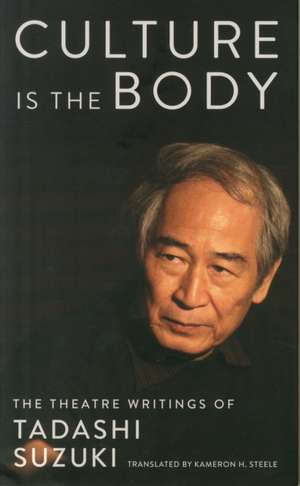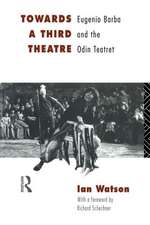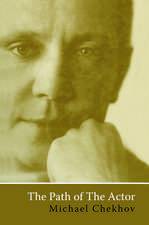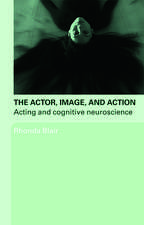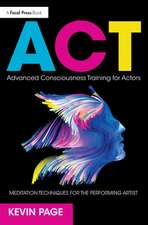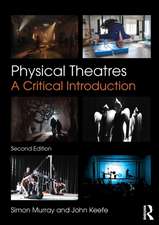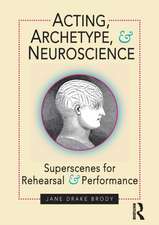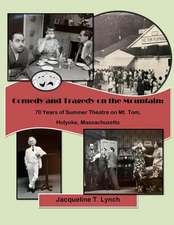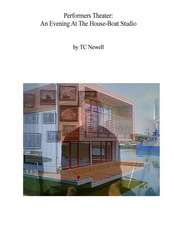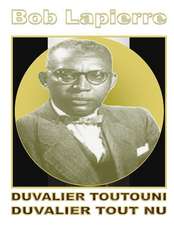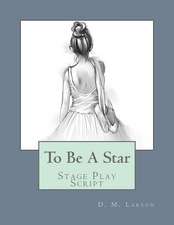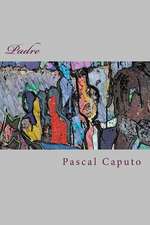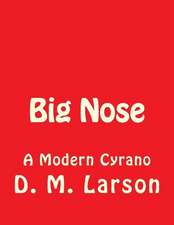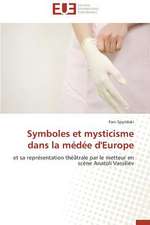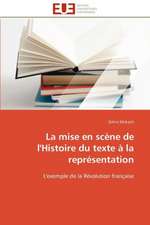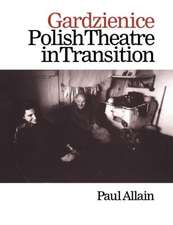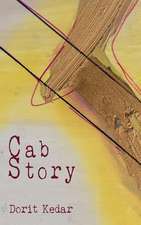Culture Is the Body: The Theatre Writings of Tadashi Suzuki
Autor Tadashi Suzuki Traducere de Kameron Steeleen Limba Engleză Paperback – 3 aug 2015
"From his artistic home in the small village of Toga Mura in the Japanese Alps, Tadashi Suzuki's influence has spread around the world, transcending cultural and political boundaries. His bold vision of what the theatre can be and what the theatre can do is both uncompromising and exceedingly generous. The SCOT company's groundbreaking productions and methods of training have inspired and continue to inspire generations of theatre artists and audiences. The day I first met Suzuki, the trajectory of my life was altered irrevocably. The very existence of SITI Company is due to Suzuki’s foresight, bigheartedness and determination." -Anne Bogart
"What takes my breath away most about Tadashi Suzuki's work is the precision and accuracy with which he manages time and space. For one-and-a-half to two hours, the use of sound, precise scene transitions and mammoth energy compressed through his singular directorial vision create a sustained power which blows the audience away—a shocking style requiring an exceptional attention and concentration from the viewer. His unique method of rigorous actor training has made him a grand master of the rarest variety, enabling him to maintain a company that continues to inspire the evolution of contemporary theatre in our ever-changing world." -Yuri Lubimov
"In America the theatre for the most part is naturalistic. People want to be comfortable. They want to identify immediately with the situation. They want everything finished, put in a box and wrapped up with a bow. But I believe, ideally, you want to leave the theatre still thinking about it, still questioning it. What I find exciting about Suzuki’s work is that we come into the theatre and we have a surprise. We have to think about what we have seen and we leave the theatre thinking about it. I believe that in a sense my work is similar to what Suzuki is doing in his work. Theatre that you have to rethink. It poses more questions than answers." -Robert Wilson
Renowned for his actor training methods, Tadashi Suzuki provides a thorough and accessible formulation of his ideas and beliefs in this new edition of his theater writings. One of the world's most revered theater directors, Suzuki is also a seminal thinker and practitioner whose work has had a profound influence on theater worldwide. This landmark collection provides a useful, provocative look at his philosophical and practical approaches to the stage. Culture is the Body is a complete revision of Suzuki's influential book The Way of Acting, featuring new essays and in a revised translation by Kameron Steele, a longtime collaborator of Suzuki's.
Tadashi Suzuki is the founder and director of the Suzuki Company of Toga (SCOT), the organizer of Japan's first international theater festival (Toga Festival), and the creator of the Suzuki Method of Actor Training. Suzuki has articulated his theories in a number of books. He has taught his system of actor training in schools and theaters throughout the world. Besides productions with his own company, he has directed several international collaborations.
"What takes my breath away most about Tadashi Suzuki's work is the precision and accuracy with which he manages time and space. For one-and-a-half to two hours, the use of sound, precise scene transitions and mammoth energy compressed through his singular directorial vision create a sustained power which blows the audience away—a shocking style requiring an exceptional attention and concentration from the viewer. His unique method of rigorous actor training has made him a grand master of the rarest variety, enabling him to maintain a company that continues to inspire the evolution of contemporary theatre in our ever-changing world." -Yuri Lubimov
"In America the theatre for the most part is naturalistic. People want to be comfortable. They want to identify immediately with the situation. They want everything finished, put in a box and wrapped up with a bow. But I believe, ideally, you want to leave the theatre still thinking about it, still questioning it. What I find exciting about Suzuki’s work is that we come into the theatre and we have a surprise. We have to think about what we have seen and we leave the theatre thinking about it. I believe that in a sense my work is similar to what Suzuki is doing in his work. Theatre that you have to rethink. It poses more questions than answers." -Robert Wilson
Renowned for his actor training methods, Tadashi Suzuki provides a thorough and accessible formulation of his ideas and beliefs in this new edition of his theater writings. One of the world's most revered theater directors, Suzuki is also a seminal thinker and practitioner whose work has had a profound influence on theater worldwide. This landmark collection provides a useful, provocative look at his philosophical and practical approaches to the stage. Culture is the Body is a complete revision of Suzuki's influential book The Way of Acting, featuring new essays and in a revised translation by Kameron Steele, a longtime collaborator of Suzuki's.
Tadashi Suzuki is the founder and director of the Suzuki Company of Toga (SCOT), the organizer of Japan's first international theater festival (Toga Festival), and the creator of the Suzuki Method of Actor Training. Suzuki has articulated his theories in a number of books. He has taught his system of actor training in schools and theaters throughout the world. Besides productions with his own company, he has directed several international collaborations.
Preț: 101.65 lei
Nou
Puncte Express: 152
Preț estimativ în valută:
19.45€ • 20.31$ • 16.10£
19.45€ • 20.31$ • 16.10£
Carte disponibilă
Livrare economică 15-29 martie
Preluare comenzi: 021 569.72.76
Specificații
ISBN-13: 9781559364966
ISBN-10: 1559364963
Pagini: 192
Ilustrații: B&W photographs throughout
Dimensiuni: 145 x 234 x 20 mm
Greutate: 0.36 kg
Editura: Theatre Communications Group
ISBN-10: 1559364963
Pagini: 192
Ilustrații: B&W photographs throughout
Dimensiuni: 145 x 234 x 20 mm
Greutate: 0.36 kg
Editura: Theatre Communications Group
Notă biografică
Tadashi Suzuki is the founder and director of the Suzuki Company of Toga (SCOT) based in Toga Village, located in the mountains of Toyama prefecture. He is the organizer of Japan’s first international theatre festival (Toga Festival), and the creator of the Suzuki Method of Actor Training. Suzuki also plays an important role with several other organizations: as General Artistic Director of Shizuoka Performing Arts Center (1995~2007), as a member of the International Theatre Olympics Committee, as founding member of the BeSeTo Festival (jointly organized by leading theatre professionals from Japan, China and Korea) and as Chairman of the Board of Directors for the Japan Performing Arts Foundation, a nation-wide network of theatre professionals in Japan.
Suzuki’s works include On the Dramatic Passions, The Trojan Women, Dionysus, King Lear, Cyrano de Bergerac, Madame de Sade and many others. Besides productions with his own company, he has directed several international collaborations, such as The Tale of Lear, co-produced and presented by four leading regional theatres in the US; King Lear, presented with the Moscow Art Theatre; Oedipus Rex, co-produced by Cultural Olympiad and Düsseldorf Schauspiel Haus; and Electra, produced by Ansan Arts Center/Arco Arts Theatre in Korea and the Taganka Theatre in Russia.
Suzuki has taught his system of actor training in schools and theatres throughout the world, including The Juilliard School in New York and the Moscow Art Theatre. The Cambridge University Press published The Theatre of Suzuki Tadashi as part of their Directors in Perspective series, featuring leading theatre directors of the 20th Century. This series includes works on Meyerlhold, Brecht, Strehler, Peter Brook and Robert Wilson among others.
Not just one of the world’s foremost theatre directors, Suzuki is also a seminal thinker and practitioner whose work has a powerful influence on theatre everywhere. Suzuki’s primary concerns include: the structure of a theatre group, the creation and use of theatrical space, and the overcoming of cultural and national barriers in the interest of creating work that is truly universal. Suzuki has established in Toga one of the largest international theatre centers in the world. Surrounded by the beautiful wilderness of Toga, the facility includes six theatres, rehearsal rooms, offices, lodgings and restaurants, etc.
Suzuki’s activities, both as a director creating multilingual and multicultural productions, and as a festival producer bringing people from throughout the world together in the context of shared theatrical endeavor, reflect an aggressive approach to dealing with the fundamental issues of our times.
Kameron Steele is an American actor, director and teacher. After receiving his BFA in Performance Studies from Northwestern University in 1991, he joined Tadashi Suzuki's SCOT company in Toga, Japan, appearing in King Lear, Ivanov, Dionysus and Greetings from the Edge of the Earth, among others. From 1998-2008 Steele also worked extensively with Robert Wilson, appearing in Persephone, Woyzeck, The Days Before and the title role in Prometheus. As director he has presented works in NYC at HERE, PS122, PRELUDE, LMCC, The Public, as well as on tour in Argentina, Mexico, Belgium and Spain. Steele has translated and/or adapted several works by Japanese authors including Yukio Mishima, Shuji Terayama, Kobo Abe, Masataka Matsuda and Mikuni Yanaihara. He also created the English subtitles for Soda Kazuhiro's landmark documentary films Senkyo (Election) and Engeki (Theatre). In 2014, Steele received his MFA in directing from the California Institute of the Arts. He currently leads the Suzuki Method of Actor Training Program in Toga.
Suzuki’s works include On the Dramatic Passions, The Trojan Women, Dionysus, King Lear, Cyrano de Bergerac, Madame de Sade and many others. Besides productions with his own company, he has directed several international collaborations, such as The Tale of Lear, co-produced and presented by four leading regional theatres in the US; King Lear, presented with the Moscow Art Theatre; Oedipus Rex, co-produced by Cultural Olympiad and Düsseldorf Schauspiel Haus; and Electra, produced by Ansan Arts Center/Arco Arts Theatre in Korea and the Taganka Theatre in Russia.
Suzuki has taught his system of actor training in schools and theatres throughout the world, including The Juilliard School in New York and the Moscow Art Theatre. The Cambridge University Press published The Theatre of Suzuki Tadashi as part of their Directors in Perspective series, featuring leading theatre directors of the 20th Century. This series includes works on Meyerlhold, Brecht, Strehler, Peter Brook and Robert Wilson among others.
Not just one of the world’s foremost theatre directors, Suzuki is also a seminal thinker and practitioner whose work has a powerful influence on theatre everywhere. Suzuki’s primary concerns include: the structure of a theatre group, the creation and use of theatrical space, and the overcoming of cultural and national barriers in the interest of creating work that is truly universal. Suzuki has established in Toga one of the largest international theatre centers in the world. Surrounded by the beautiful wilderness of Toga, the facility includes six theatres, rehearsal rooms, offices, lodgings and restaurants, etc.
Suzuki’s activities, both as a director creating multilingual and multicultural productions, and as a festival producer bringing people from throughout the world together in the context of shared theatrical endeavor, reflect an aggressive approach to dealing with the fundamental issues of our times.
Kameron Steele is an American actor, director and teacher. After receiving his BFA in Performance Studies from Northwestern University in 1991, he joined Tadashi Suzuki's SCOT company in Toga, Japan, appearing in King Lear, Ivanov, Dionysus and Greetings from the Edge of the Earth, among others. From 1998-2008 Steele also worked extensively with Robert Wilson, appearing in Persephone, Woyzeck, The Days Before and the title role in Prometheus. As director he has presented works in NYC at HERE, PS122, PRELUDE, LMCC, The Public, as well as on tour in Argentina, Mexico, Belgium and Spain. Steele has translated and/or adapted several works by Japanese authors including Yukio Mishima, Shuji Terayama, Kobo Abe, Masataka Matsuda and Mikuni Yanaihara. He also created the English subtitles for Soda Kazuhiro's landmark documentary films Senkyo (Election) and Engeki (Theatre). In 2014, Steele received his MFA in directing from the California Institute of the Arts. He currently leads the Suzuki Method of Actor Training Program in Toga.
Descriere
"From his artistic home in the small village of Toga Mura in the Japanese Alps, Tadashi Suzuki's influence has spread around the world, transcending cultural and political boundaries. His bold vision of what the theatre can be and what the theatre can do is both uncompromising and exceedingly generous. The SCOT company's groundbreaking productions and methods of training have inspired and continue to inspire generations of theatre artists and audiences. The day I first met Suzuki, the trajectory of my life was altered irrevocably. The very existence of SITI Company is due to Suzuki’s foresight, bigheartedness and determination." -Anne Bogart
"What takes my breath away most about Tadashi Suzuki's work is the precision and accuracy with which he manages time and space. For one-and-a-half to two hours, the use of sound, precise scene transitions and mammoth energy compressed through his singular directorial vision create a sustained power which blows the audience away—a shocking style requiring an exceptional attention and concentration from the viewer. His unique method of rigorous actor training has made him a grand master of the rarest variety, enabling him to maintain a company that continues to inspire the evolution of contemporary theatre in our ever-changing world." -Yuri Lubimov
"In America the theatre for the most part is naturalistic. People want to be comfortable. They want to identify immediately with the situation. They want everything finished, put in a box and wrapped up with a bow. But I believe, ideally, you want to leave the theatre still thinking about it, still questioning it. What I find exciting about Suzuki’s work is that we come into the theatre and we have a surprise. We have to think about what we have seen and we leave the theatre thinking about it. I believe that in a sense my work is similar to what Suzuki is doing in his work. Theatre that you have to rethink. It poses more questions than answers." -Robert Wilson
Renowned for his actor training methods, Tadashi Suzuki provides a thorough and accessible formulation of his ideas and beliefs in this new edition of his theater writings. One of the world's most revered theater directors, Suzuki is also a seminal thinker and practitioner whose work has had a profound influence on theater worldwide. This landmark collection provides a useful, provocative look at his philosophical and practical approaches to the stage. Culture is the Body is a complete revision of Suzuki's influential book The Way of Acting, featuring new essays and in a revised translation by Kameron Steele, a longtime collaborator of Suzuki's.
Tadashi Suzuki is the founder and director of the Suzuki Company of Toga (SCOT), the organizer of Japan's first international theater festival (Toga Festival), and the creator of the Suzuki Method of Actor Training. Suzuki has articulated his theories in a number of books. He has taught his system of actor training in schools and theaters throughout the world. Besides productions with his own company, he has directed several international collaborations.
"What takes my breath away most about Tadashi Suzuki's work is the precision and accuracy with which he manages time and space. For one-and-a-half to two hours, the use of sound, precise scene transitions and mammoth energy compressed through his singular directorial vision create a sustained power which blows the audience away—a shocking style requiring an exceptional attention and concentration from the viewer. His unique method of rigorous actor training has made him a grand master of the rarest variety, enabling him to maintain a company that continues to inspire the evolution of contemporary theatre in our ever-changing world." -Yuri Lubimov
"In America the theatre for the most part is naturalistic. People want to be comfortable. They want to identify immediately with the situation. They want everything finished, put in a box and wrapped up with a bow. But I believe, ideally, you want to leave the theatre still thinking about it, still questioning it. What I find exciting about Suzuki’s work is that we come into the theatre and we have a surprise. We have to think about what we have seen and we leave the theatre thinking about it. I believe that in a sense my work is similar to what Suzuki is doing in his work. Theatre that you have to rethink. It poses more questions than answers." -Robert Wilson
Renowned for his actor training methods, Tadashi Suzuki provides a thorough and accessible formulation of his ideas and beliefs in this new edition of his theater writings. One of the world's most revered theater directors, Suzuki is also a seminal thinker and practitioner whose work has had a profound influence on theater worldwide. This landmark collection provides a useful, provocative look at his philosophical and practical approaches to the stage. Culture is the Body is a complete revision of Suzuki's influential book The Way of Acting, featuring new essays and in a revised translation by Kameron Steele, a longtime collaborator of Suzuki's.
Tadashi Suzuki is the founder and director of the Suzuki Company of Toga (SCOT), the organizer of Japan's first international theater festival (Toga Festival), and the creator of the Suzuki Method of Actor Training. Suzuki has articulated his theories in a number of books. He has taught his system of actor training in schools and theaters throughout the world. Besides productions with his own company, he has directed several international collaborations.
